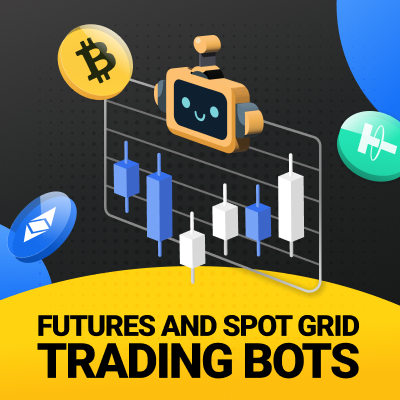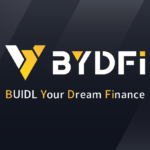Now Reading: What Are These OpenAI and SpaceX Stock Tokens Robinhood Is Giving Away?
-
01
What Are These OpenAI and SpaceX Stock Tokens Robinhood Is Giving Away?
What Are These OpenAI and SpaceX Stock Tokens Robinhood Is Giving Away?
:max_bytes(150000):strip_icc()/GettyImages-2218344211-280e2c7f558649beade9fbda99f83b39.jpg?ssl=1)
:max_bytes(150000):strip_icc():format(jpeg)/GettyImages-2218344211-280e2c7f558649beade9fbda99f83b39.jpg)
KeyTakeaways
- Robinhood earlier this week announced it would give away to eligible European users small “tokenized” stakes in private companies OpenAI and SpaceX, an offering OpenAI said it did not endorse.
- Federal regulations currently prohibit investors with assets and income below a specific threshold from investing in private companies, which are subject to less stringent financial disclosure rules.
- Robinhood CEO Vlad Tenev argues tokenizing the equity of private companies will give everyday investors access to the outsized gains that can come from being an early investor in groundbreaking upstarts.
Robinhood Markets earlier this week said it would offer European users the option to trade “stock tokens,” and that it would give away $5 worth of “tokenized” stock in two major private companies, OpenAI and SpaceX, to eligible investors.
OpenAI on Wednesday disavowed the offering, writing, “These ‘OpenAI tokens’ are not OpenAI equity. We did not partner with Robinhood, were not involved in this, and do not endorse it.” The company urged investors to “please be careful.”
Robinhood CEO Vlad Tenev responded in an X post on Wednesday night: “While it is true that they aren’t technically ‘equity’ (you can see the precise dynamics in our Terms for those interested), the tokens effectively give retail investors exposure to these private assets.” Separately, a spokesperson said that the tokens provide “indirect exposure… and are enabled by Robinhood’s ownership stake in a special purpose vehicle.”
Elon Musk, the CEO of SpaceX, has not commented publicly on the stock tokens. But he did seize the opportunity to take a jab at OpenAI, with which he has sparred in the past. “Your ‘equity’ is fake,” Musk replied to the company’s post.
So if stock tokens aren’t equity, what are they?
What Are Stock Tokens?
Stock tokens are effectively the blockchain equivalent of equity; they represent one’s transferrable ownership stake in a company.
But they differ from regular stock in a few key ways. First, they’re traded on a blockchain rather than on public exchanges. Second, they can be stored in the investor’s digital wallet, rather than being held by a custodian, like a brokerage. Third, because they are on-chain, they can be used in other decentralized finance activities, like staking.
What Are the Pros of Stock Tokenization?
Tenev, the Robinhood CEO, made the case for stock tokenization in a recent appearance on Bloomberg’s “Odd Lots” podcast.
Tokenized stocks can be held directly by the investor who owns them, which gives them more flexibility in trading. Stock that’s not in the custody of a brokerage can still be traded when that broker experiences technical difficulties; an urgent sell order can be redirected to a different broker and filled.
The decentralized nature of blockchain could make it easier for stocks to trade 24/7. As long as computers are processing transactions on the blockchain, traders can buy and sell stocks without using exchanges and clearinghouses with fixed operating hours.
Finally, tokenization makes stock available to put in a collateralized lending pool or to stake, giving investors additional sources of passive income.
Why Can’t I Get $5 of SpaceX Stock in America?
Robinhood is launching tokenized private company stock in Europe because it has less stringent rules governing private market investment.
In the U.S., private markets are accessible only to accredited investors—individuals and businesses with enough money that, in the eyes of the government, they don’t need the protections that come from regulatory oversight of public markets.
Public companies are required by the Securities and Exchange Commission to make regular financial disclosures and provide the public with material business updates. Private companies have more relaxed disclosure rules, primarily because accredited investors are assumed to be rich or savvy enough to take on the additional risk of private investments.
Will Tokenization Come to the US?
Tenev, in a Washington Post op-ed in January, said opening private markets to retail investors was central to Robinhood’s tokenization push. “Tokenizing private-company stock would enable retail investors to invest in leading companies early in their life cycles, before they potentially go public at valuations of more than $100 billion,” he wrote.
There is an obvious benefit to everyday investors being able to invest in the hottest start-ups; under existing rules, the outsized gains that come from early investment often accrue to the wealthy and well-connected. Though, public disclosure rules exist to help everyday investors and their advisors make informed decisions and protect them from fraud, and investing in small upstarts is inherently riskier than buying shares of an established public company.
Tenev told “Odd Lots” that stock tokens could become available in the U.S. without new legislation, and that Robinhood has been discussing tokenization with the SEC’s Crypto Task Force. “I think they’re pretty keen to make this happen,” he said, referring to rules that would govern the tokens.













:max_bytes(150000):strip_icc()/GettyImages-2214913494-63ba717237614811afd4197b239bd808.jpg?w=1024&resize=1024,1024&ssl=1)
:max_bytes(150000):strip_icc()/WED-SunanWongsa-nga-c47e38a331ab4809a9a5e162830307f5.jpg?w=1024&resize=1024,1024&ssl=1)












:max_bytes(150000):strip_icc()/GettyImages-2214913494-63ba717237614811afd4197b239bd808.jpg?w=150&resize=150,150&ssl=1)


